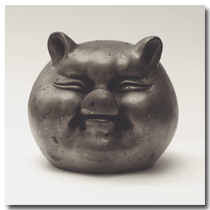 The World Cup ended today and it is a quite happy day for me. Not because it’s over, but because of how it ended.
The World Cup ended today and it is a quite happy day for me. Not because it’s over, but because of how it ended.
While watching the finale, I observed myself not wanting to leave my lucky chair, not even for a second. The reason was not that I really thought it would matter, well maybe I did. you never know. The last time I left my lucky chair, my favorite team lost.
Superstition is the belief in supernatural causality—that one event leads to the cause of another without any
natural process linking the two events—such as astrology, religion, omens, witchcraft, prophecies, etc., that contradicts natural science.Stuart A. Vyse in Believing in Magic: The Psychology of Superstition
Or shorter: A superstitious person links two absolutely unrelated events together. There is of course no proof that superstition works. Under normal circumstances – that excludes watching sport events – I’d say I am not a superstitious person. What about you?
After thinking about the question for a while and watching myself going about my daily affairs, I realized how I am trying to make sense of events and situations by treating them as if they were related.
Someone steals my parking spot, I spill my coffee and get stuck in traffic on the way home. And suddenly I declare “It’s not my day.” Even better if it is a Monday. Why do I even wonder? Whatever unfortunate happens next is proof that I am right. This day is lost. But all I did was creating a link where there was none. And now, I don’t expect to do anything right. Failure expected.
We do this a lot. “I am just not good at [I am sure you can insert something]“. “He just doesn’t like me.“, “This is just not my year.“
In many cases these statements are unfounded. Let’s say you had a great year so far, then you may not be bothered this much about some unfortunate events, but if it started out so badly that you labeled this a bad year then you will likely be less perceptive to seeing all the good things that are happening.
It is a tendency of the human mind to make sense where there is none, to create correlation where there is none.
For example, we have more trust in the abilities of people we like. This means we correlate likability with ability. Here are some other links we create quite unreasonably.
- Convenient equals good.
- The quality of the picture outside of the package must be correlated with the quality of the contents, right?
- Zero emission equals environmental friendly (read here).
- low fat equals healthy.
- busy is the same as productive.
- an academic degree means smart.
- if it is written in a book it is correct.
- throwing like a girl (what do you think?)
- you get what you pay for.
These are just some examples and you may not agree with all. But my suggestion this week is that you try to be mindful about how often you correlate events or occurrences that have no correlation or how often you notice others doing it. Sports and politics is a good starting point if you have trouble finding these in your daily life. The ability to see these is another way of freedom. Think about it.
This is Quick Tip No 44.
photo credit: Bert Werk via photopin cc